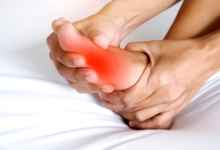On World Parkinson’s Day in 2024, here are five misconceptions and truths about the degenerative brain disease
Parts of your brain degrade with Parkinson’s disease, an age-related degenerative brain illness. Over time, the condition has caused damage to the brain and has been more debilitating.

Its symptoms include uncontrollable shaking of certain body parts (tremor), Bradykinesia, or sluggish movement, rigid and inflexible muscles, anxiety and depression, difficulty balancing, balance concerns that lead to falls, sexual dysfunction, urination problems, sleeplessness, and memory problems. Senior Consultant Neurologist Dr. Jayendra Yadav of Medicover Hospitals in Navi Mumbai said that many individuals with this ailment suffer in silence and that knowledge of it is still lacking.
Dispelling rumours about Parkinson’s condition
Myth 1: There is no cure for Parkinson’s disease; it is an advancing illness
Fact: Although there is no known treatment for this illness, there are ways to manage its symptoms and enhance your quality of life, including Deep Brain Stimulation (DBS), medicine, and lifestyle modifications. DBS is a ground-breaking device that allows patients to live regular lives while managing tremors.
Myth #2: People with Parkinson’s disease will have tremors as symptoms
Fact: In addition to tremors, Parkinson’s disease sufferers also experience loss of balance, tremors, decreased mobility, hunched posture, and uncontrolled movements.
Myth #3: It’s not recommended for people with Parkinson’s to exercise
Fact: Exercise tends to enhance balance, flexibility, and mobility and is essential in managing the symptoms of Parkinson’s disease. It is advisable to refrain from strenuous activity and to exercise under the supervision of a professional.
Myth #4: Head traumas cause Parkinson’s disease
Factual statement: Although head trauma is known to raise the risk of Parkinson’s disease, it is not the direct cause of the condition. Parkinson’s disease is influenced by both environmental and genetic factors.
Myth No. 5: Hereditary Parkinson’s disease
Factual statement: Although some instances of Parkinson’s disease are inherited, most do not. A family history is one of the risk factors for Parkinson’s disease; however, it is not always hereditary or caused by chemicals in the environment.







